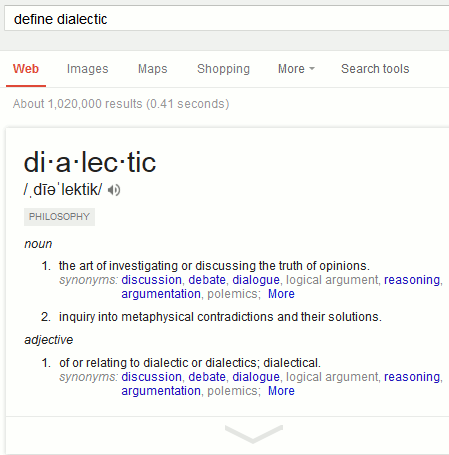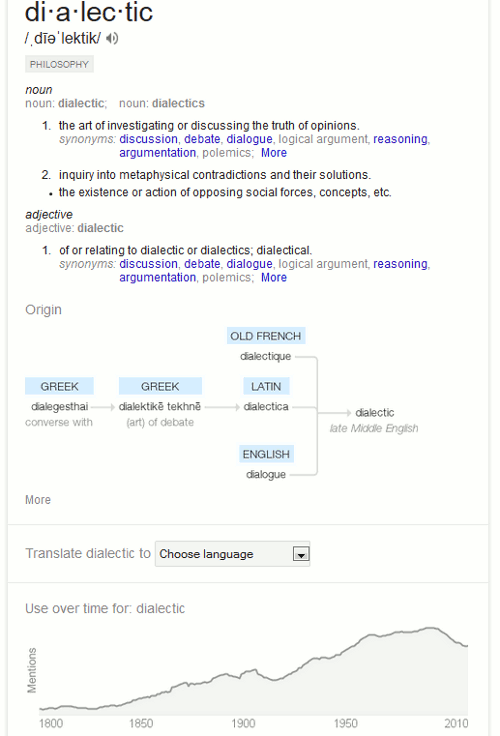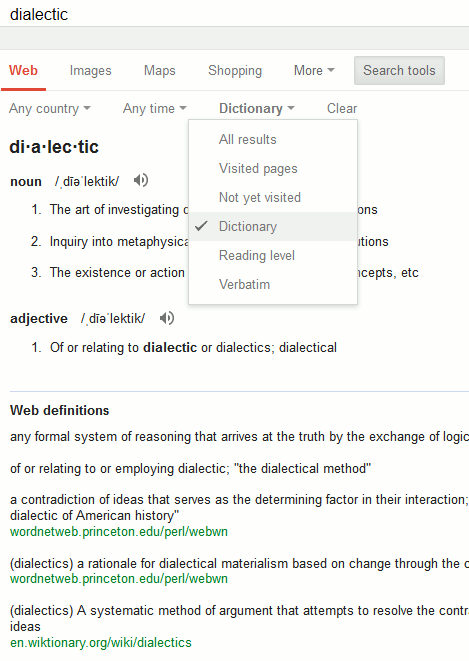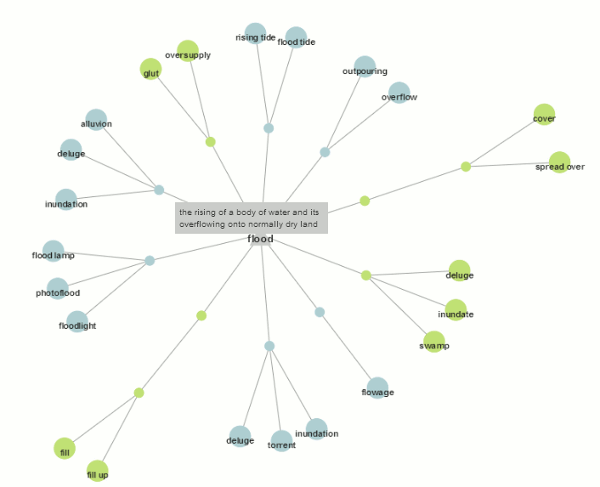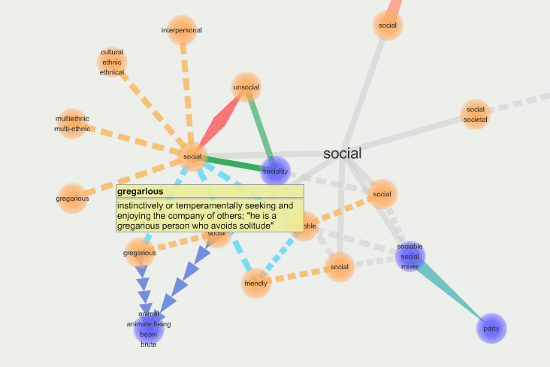Google has added extra information to its web definitions. When using the ‘define’ command, an expandable box now appears containing additional synonyms, how the word is used in a sentence, the origins of the word, the use of the word over time and translations. At the moment it is only available in Google.com and you no longer need the colon immediately after define. So, for definitions of dialectic simply type in define dialectic.
The box gives definitions and synonyms of the word and the ‘More’ link gives you an example of its use in a sentence.
Click on the grey, downward pointing chevron to open the box and see information on the origin of the word, translations (beware – some are rather bizarre!), and use of the word over time. The last is powered by the Google Books Ngram Viewer, which shows the frequency of words in Google Books. Click on the graph, and you are taken to the Ngram Viewer where you can drill deeper into the data and see the use of the word in context.
Compare this with the old version of define results that are still displayed in Google.co.uk:
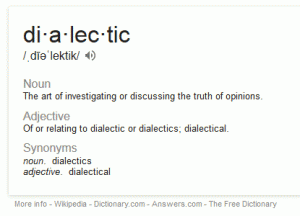
The new ‘define’ box in Google.com certainly gives you much more varied information, but the Dictionary search option that provided extra definitions has been dropped. It used to be under ‘Search tools’, ‘All results’. It can still be seen in Google.co.uk.
The new define only works on English words or words that have been absorbed into the English language. It can cope with schadenfreude and correctly defines tikka as “an Indian dish of small pieces of meat or vegetables marinated in a spice mixture”. When I asked it to define balti, though, it came up with a simple web definition of it being a city in Moldova. The standard Google web search results came up with the common UK usage of it as a type of curry served in a steel balti bowl. Our (UK) use of the word is probably too local for it to be have been picked up by Google. Similarly, phrases such as “chicken tikka” generally pull up a single web definition although some do trigger the translation options, for example “climate change”, “global warming”.
Overall, I like the new ‘define’ but I regret the loss of the extra definitions that the Dictionary search option offered. Sometimes, the definitions that ‘define’ offers are somewhat impenetrable. The Dictionary option provided a list of alternatives that were more understandable.
